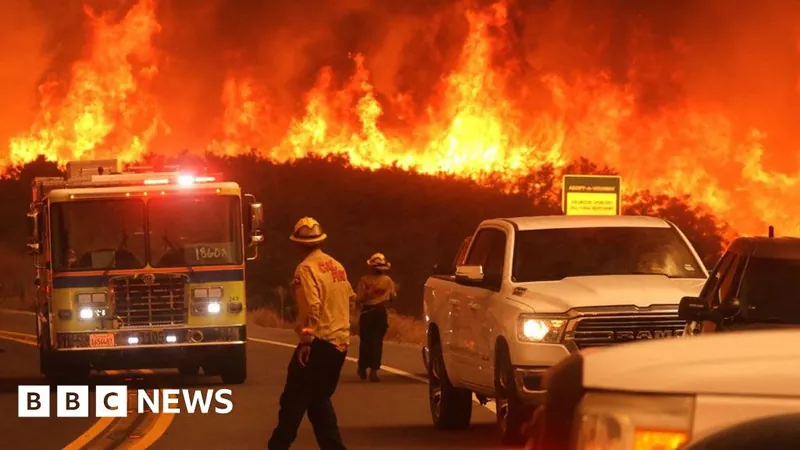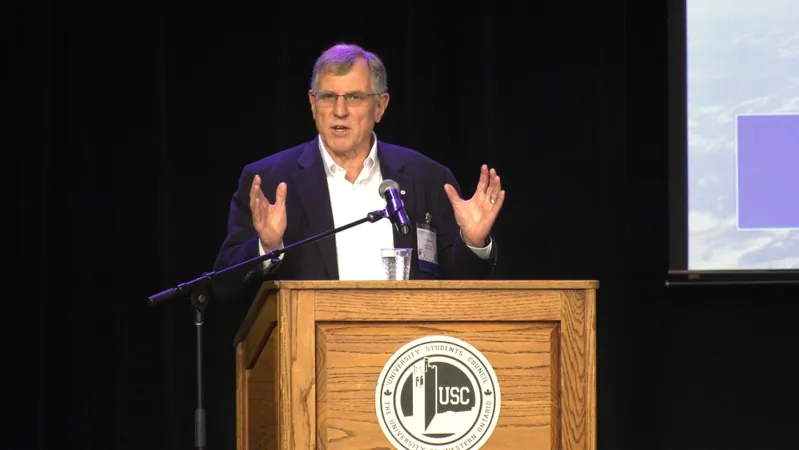
What is COP29 and Why It Matters More Than Ever?
2024-11-09
Author: Amelia
As global leaders prepare for COP29, the annual United Nations climate conference, they are facing mounting pressure to address rapidly escalating climate issues. Scheduled to take place from November 11-22 in Baku, Azerbaijan, this year's event comes in the wake of increasing climate-related disasters and political challenges, including the recent US election of Donald Trump - a figure notorious for his skepticism regarding climate change.
Climate Crisis: A Growing Emergency
The stakes couldn't be higher as countries grapple with extreme weather events fueled by climate change. Recent catastrophic floods in Spain serve as a grim reminder of the urgent need for action. At COP29, a central focus will be obtaining financial commitments from developed nations to assist vulnerable countries in reducing their greenhouse gas emissions and adapting to the severe consequences of climate change.
What is COP29?
COP29 stands for the 29th Conference of the Parties to the UN Framework Convention on Climate Change (UNFCCC), which was established in 1992 and now includes nearly 200 nations. The COP functions as the main decision-making body for international climate policy, convening annually to negotiate strategies to combat climate change.
Notable Absences: What It Means for COP29
Traditionally, the conference kicks off with attendance from top global leaders, providing momentum for negotiations. However, a significant number of key figures—including US President Joe Biden, China's Xi Jinping, and France's Emmanuel Macron—will be noticeably absent. Their non-attendance, driven by various geopolitical pressures and domestic challenges, raises concerns about the conference's effectiveness in initiating impactful climate action.
Experts suggest that many countries may favor addressing critical climate issues at next year's COP30 in Brazil, indicating a troubling trend of indecisiveness.
Core Issues on the Agenda
One pressing topic at COP29 will be financial support for developing nations. Under the Paris Agreement, world leaders committed to limiting global warming to no more than 1.5°C above pre-industrial levels. To meet this target, countries need to significantly enhance their emissions reduction efforts and develop mechanisms for financial assistance to support emerging economies.
Global discussions aim to establish a target for climate financing that could amount to over $1 trillion annually by 2030. However, there is a call for greater accountability, as some countries classified as "developing" have historically been exempt from contributing to international climate funding. This disparity needs addressing to build the necessary trust for effective collaboration.
Moreover, countries are required to revisit their climate strategies every five years under the Paris Agreement. With upcoming deadlines, the strength of these strategies will play a crucial role in fostering or hindering progress at the conference.
The Controversy of Hosting COP29 in Azerbaijan
Azerbaijan’s position as host is fraught with challenges. The nation plans to expand its gas production significantly, creating skepticism about its commitment to transitioning away from fossil fuels. Many critics fear the conference will merely serve as a platform for Azerbaijan to bolster investments in its oil and gas sectors rather than producing genuine climate solutions. Concerns regarding human rights abuses in the country further complicate the narrative surrounding COP29.
Transforming a Potential Setback into Opportunity
Trump's recent election has triggered fears of a rollback in climate progress, especially given his previous stances on environmental regulations. While his absence from COP29 may shift some focus to discussions without his influence, the Biden administration still aims to push for substantial agreements. Experts argue that despite potential setbacks, the urgency of the climate crisis may galvanize nations to forge an unprecedented coalition for future climate financing efforts.
Understanding the Immediate Climate Context
The urgency of this year's climate talks is underscored by alarming projections from climate scientists. 2024 is anticipated to become the warmest year on record, fueled by increasingly severe heatwaves, hurricanes, and destructive flooding—events that have already claimed lives and destroyed communities worldwide. The need for immediate and decisive action to stem the tide of climate degradation has never been clearer.
Implications for You and the Global Community
The outcomes of COP29 could have significant repercussions for stakeholders across the globe. Agreements made in Baku may influence national policies on renewable energy development, potentially reshaping energy economies and affecting consumer energy costs. Additionally, creating substantial financial commitments from developed to developing nations could redirect taxpayer funds to mitigate climate impacts in the most vulnerable regions.
Ultimately, while the discussions in Baku represent a challenging prospect, they offer crucial opportunities to secure a cleaner, safer planet for future generations. Now is the time for leaders to rise above division and take meaningful steps toward sustaining our global environment. Will history remember COP29 as a turning point or a missed opportunity? Time will tell, but the world is watching closely.









 Brasil (PT)
Brasil (PT)
 Canada (EN)
Canada (EN)
 Chile (ES)
Chile (ES)
 España (ES)
España (ES)
 France (FR)
France (FR)
 Hong Kong (EN)
Hong Kong (EN)
 Italia (IT)
Italia (IT)
 日本 (JA)
日本 (JA)
 Magyarország (HU)
Magyarország (HU)
 Norge (NO)
Norge (NO)
 Polska (PL)
Polska (PL)
 Schweiz (DE)
Schweiz (DE)
 Singapore (EN)
Singapore (EN)
 Sverige (SV)
Sverige (SV)
 Suomi (FI)
Suomi (FI)
 Türkiye (TR)
Türkiye (TR)